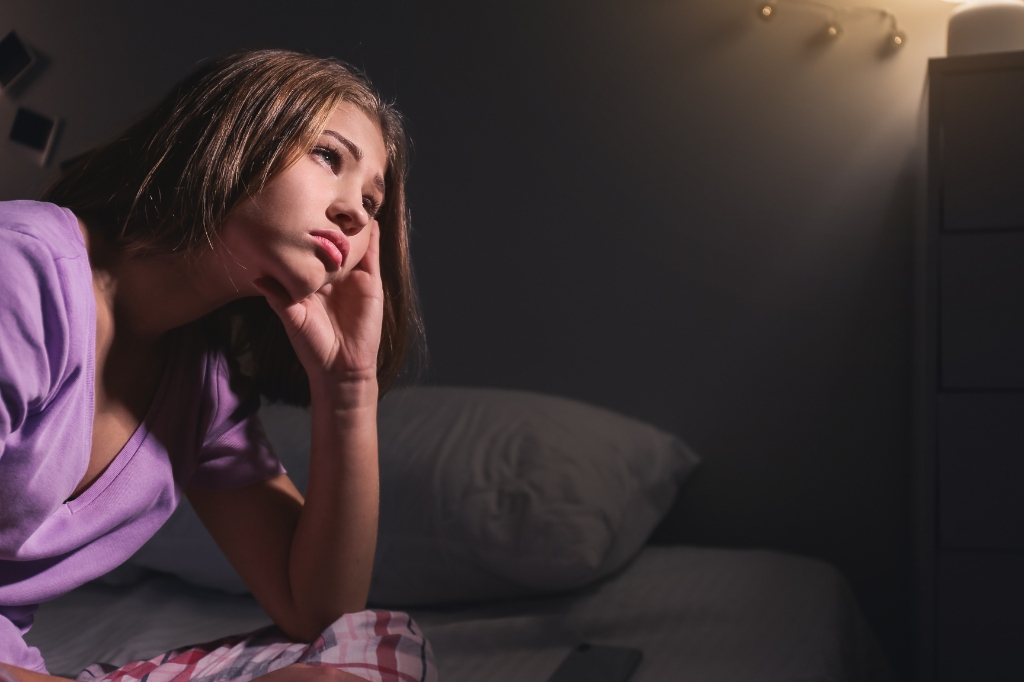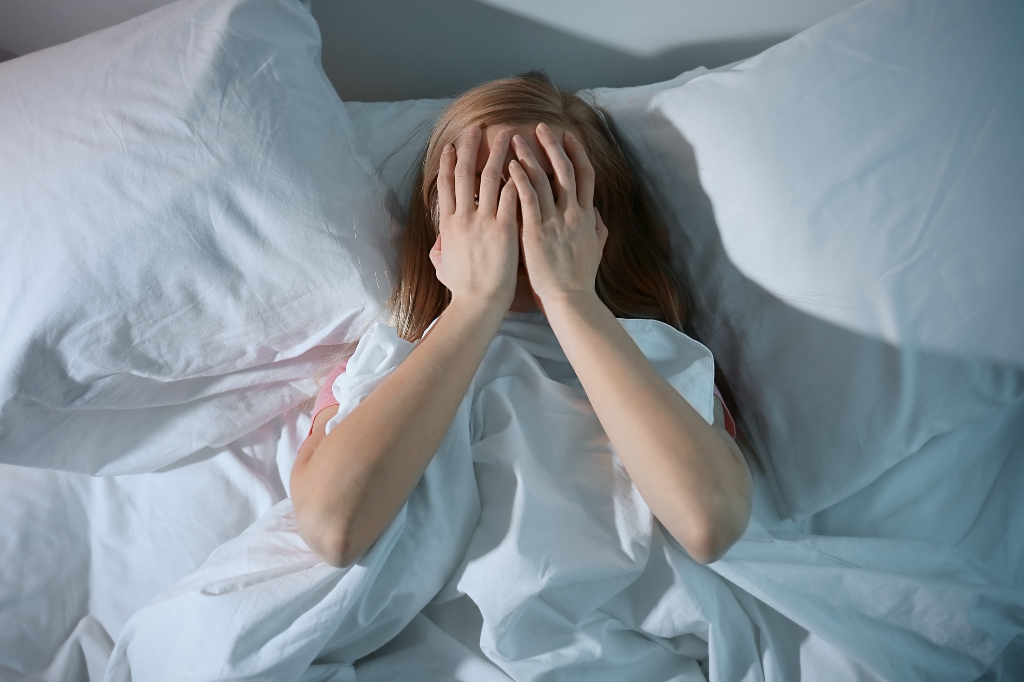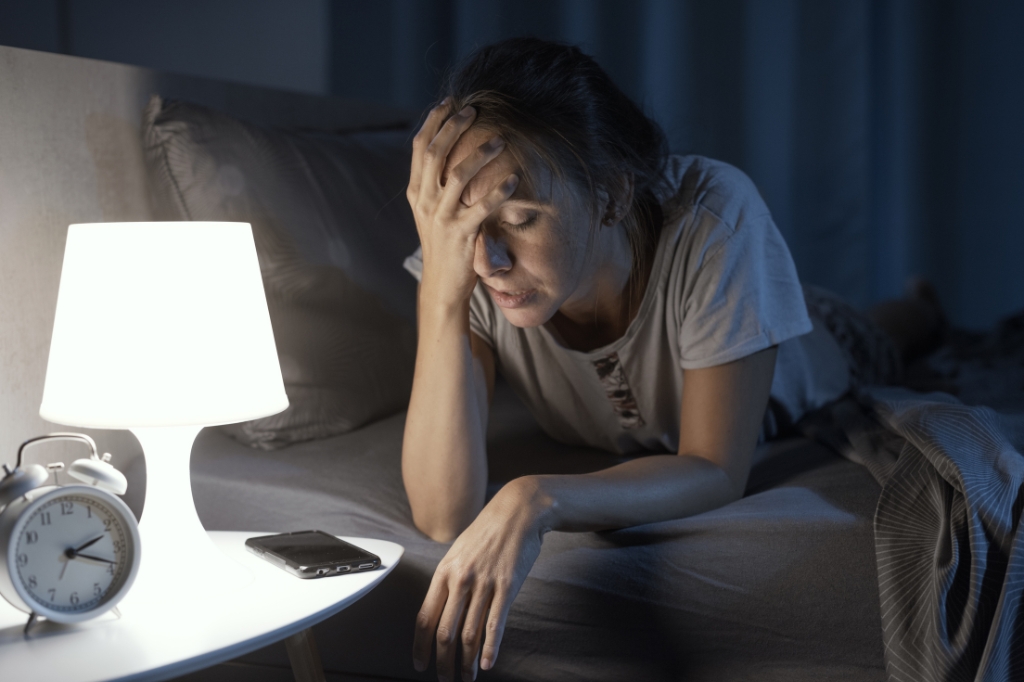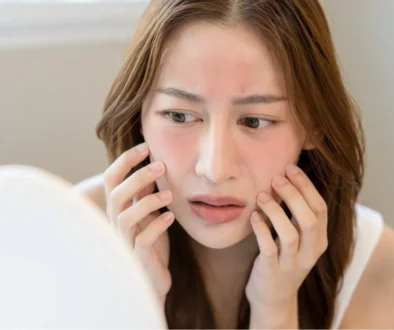Struggling with Sleepless Nights? Here’s What You Need to Know About Insomnia
Do you often find yourself tossing and turning at night, unable to fall or stay asleep? If you’ve been experiencing sleepless nights, insomnia might be the culprit. Many people face difficulties with sleep, whether it’s struggling to fall asleep, waking up too soon, or not feeling unrefreshed. Insomnia is a common problem that can leave you exhausted and affect your daily life. Understanding sleep disturbance and the reasons for sleeplessness is key to addressing the issue and getting the restful sleep you need.
In this blog, we’ll explore the causes of sleepless nights, its effects on your health, and practical solutions to improve your sleep quality.
What is Insomnia?
Insomnia is a frequent sleep issue that makes it challenging to enjoy a restful night’s sleep. Whether it’s because of stress, anxiety, health problems, or lifestyle choices, it can lead to sleepless nights and sleep disturbance, leaving you feeling exhausted and drained during the day. In severe cases, insomnia can result in hyper somnia—excessive daytime sleepiness due to poor quality sleep at night.
But why do some people struggle with sleep while others can rest easily? The reasons for sleeplessness vary greatly, and in this blog, we’ll break down the most common causes and provide tips on improving your sleep.

Common Causes of Insomnia
There are several reasons for sleeplessness, and understanding the root causes is key to effectively tackling the issue.
- Stress and Anxiety
Stressful life events, such as work pressure, family problems or financial worries, can leave your mind restless and make it hard to wind down at night. Anxiety can also contribute to sleep disturbance, with constant concern preventing you from relaxing enough to sleep peacefully.
- Health Issues
Chronic conditions like asthma, arthritis, or acid reflux can cause discomfort that disrupts sleep. Conditions like depression, bipolar disorder, and PTSD are commonly linked to insomnia, and they can make sleep quality even worse.
- Poor Sleep Habits
Irregular sleep patterns, too much screen time before bed, and stimulating activities too close to bedtime can interfere with your body’s natural sleep cycle, making it harder to fall asleep. This is one of the most common causes of trouble sleeping, especially in today’s fast-paced world, where work and entertainment often invade our sleep time.
- Medications
Certain medications, such as stimulants, antidepressants, and high blood pressure drugs, can interfere with your ability to sleep. It’s essential to check with your doctor if your medication might affect your sleep.
- Environmental Factors
Noise, light, or uncomfortable room temperature can also disturb sleep. A noisy neighbourhood, uncomfortable mattress, or bright streetlights can make a peaceful night’s rest challenging.
- Lifestyle Choices
Excessive caffeine consumption, alcohol use, and heavy meals before bedtime can all contribute to sleeplessness. Unhealthy habits like inconsistent sleep routines or not staying physically active enough can contribute to struggles.
Types of Insomnia
Insomnia doesn’t just look the same for everyone. It can vary in severity and duration, affecting your sleep differently.
- Acute Insomnia
This type is temporary and typically caused by a specific event or situation, such as work-related stress or a personal loss. Acute insomnia generally lasts only a few days to a few weeks and can be managed through relaxation techniques and lifestyle changes.
- Chronic Insomnia
Chronic insomnia happens at least three times a week and persists for three months or more. This type of insomnia can significantly affect your daily life, causing exhaustion, difficulty focusing, and shifts in mood. Chronic insomnia may require medical treatment or therapy.
- Comorbid Insomnia
This happens when insomnia is associated with other health problems like heart disease, high blood pressure, diabetes, and obesity. Treating the underlying condition often helps alleviate symptoms.

How Insomnia Affects Your Health
Insomnia can impact more than sleep. Over time, poor sleep quality can affect physical and mental well-being.
- Physical Health Risks
Persistent insomnia has been tied to a range of health problems, like heart disease, high blood pressure, diabetes, and obesity. Insufficient sleep can compromise your immune system, leaving you more prone to illness.
- Mental Health Risks
Insomnia can contribute to anxiety, depression, and stress. Not getting enough sleep can worsen mood swings, increase irritability, and make concentrating harder. It also negatively affects cognitive function, leading to memory problems and difficulty concentrating during the day.
- Impaired Performance
Your ability to perform everyday tasks diminishes when you’re not getting enough sleep.It can make it harder to stay productive, think clearly, and make decisions at work, school, or home.
Effective Solutions for Sleeplessness
If you’re struggling with insomnia, several strategies can help improve your sleep and address sleep disturbance.
- Cognitive Behavioral Therapy for Insomnia (CBT-I)
Cognitive Behavioral Therapy (CBT-I) is often considered one of the most effective methods for addressing and managing insomnia. This therapy focuses on recognizing and changing negative thoughts and habits that affect sleep and enables the development of healthier sleep habits.
- Medication
In some cases, medication may be necessary to manage insomnia, especially if it’s chronic or linked to other health conditions. Your doctor may recommend sleep aids or medications that address the underlying causes of sleeplessness.
- Sleep Hygiene Practices
Adopting better sleep habits is crucial for overcoming. Some practical sleep hygiene tips include:
- Try to go to bed and wake up simultaneously every day to establish a consistent sleep routine.
- Create a comfortable sleep environment in a dark, quiet, cool room.
- Limit caffeine, alcohol, and nicotine intake before bed.
- Avoid heavy meals and stimulating activities in the evening.
- Engaging in calming activities like reading or meditation before sleep.
- Relaxation Techniques
Deep breathing, practicing progressive muscle relaxation or meditation can help relax your mind and body, making it easier to drift off to sleep. Yoga and mindfulness exercises can also improve sleep quality.

When to See a Doctor
If you’re experiencing persistent insomnia, sleeplessness, or trouble sleeping despite trying lifestyle changes, it’s essential to seek medical advice. Your doctor can assist in pinpointing the underlying cause of your sleep disturbance and recommend an appropriate treatment plan.
In addition, if you experience severe symptoms such as excessive daytime sleepiness, mood changes, or memory problems, it may indicate an underlying condition, such as hypersomnia or sleep apnea, which requires medical attention.
Final Thoughts
If you’re struggling with insomnia or experiencing sleepless nights, you’re not alone. Insomnia is a common problem that affects many people, but the good news is that it can be treated. By understanding the causes of sleeplessness and improving your sleep habits, you can regain control over your sleep and overall well-being. If you continue to experience difficulty sleeping, you must contact a healthcare provider who can help guide you toward a solution. At Lifeline Clinic Dubai, we are committed to supporting your health and well-being, providing the right resources and treatments for better sleep.

FAQs:
- What are the common reasons for sleeplessness?
Stress, anxiety, poor sleep habits, and underlying health conditions like depression or chronic pain are common causes of sleeplessness.
- How can I improve my sleep naturally?
You can improve your sleep by maintaining a regular sleep routine, steering clear of stimulants like caffeine, and winding down with a calming bedtime ritual can help improve sleep.
- When should I seek medical help for insomnia?
If your insomnia persists for more than a few weeks, or if you experience excessive daytime sleepiness or mood disturbances, it’s time to see a doctor.
- Can insomnia affect my mental health?
Yes, chronic insomnia can lead to anxiety, depression, and cognitive problems. Addressing insomnia is crucial for mental and emotional well-being.
- Is there a link between hypersomnia and insomnia?
Yes, hypersomnia, or excessive daytime sleepiness, can sometimes be a consequence of insomnia, as poor sleep quality leads to exhaustion during the day.
If you need help with insomnia or sleep issues, don’t hesitate to contact Lifeline Clinic Dubai for expert advice and personalized treatment options.




